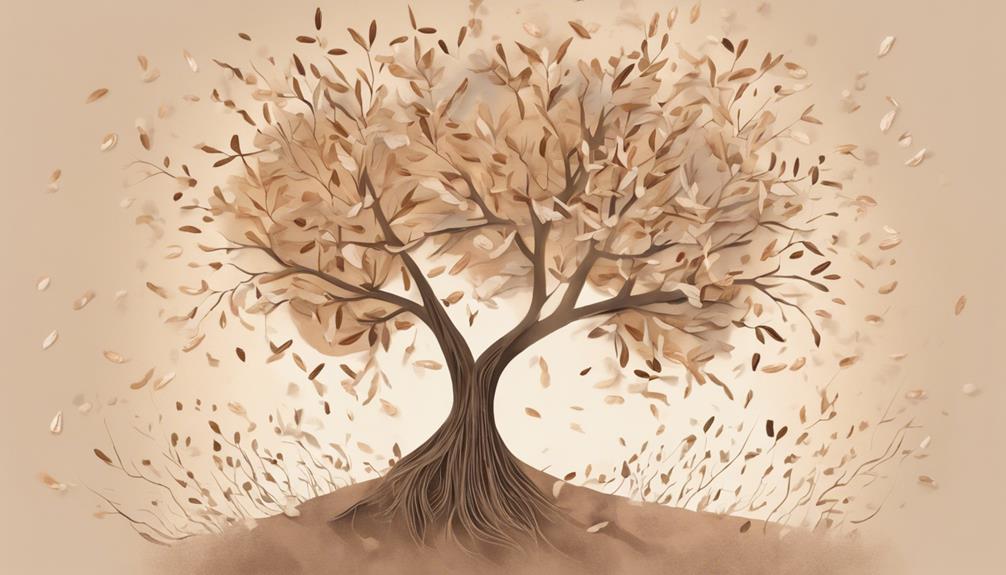As you explore the diverse world of poetry, you'll discover a rich tapestry of forms and styles. From classical structures like sonnets and iambic pentameter to the emotional depth of romantic-era poetry, each form showcases a unique aspect of the human experience. You'll find modern poets experimenting with free verse, performance poetry, and spoken word, pushing the boundaries of self-expression. Cultural heritage also plays a significant role, with diverse voices and styles converging to create a dynamic landscape. As you navigate this intricate web of poetic expression, you'll uncover the intricacies and nuances that make poetry so endlessly enthralling, and the journey only begins here.
Classical Forms of Poetry
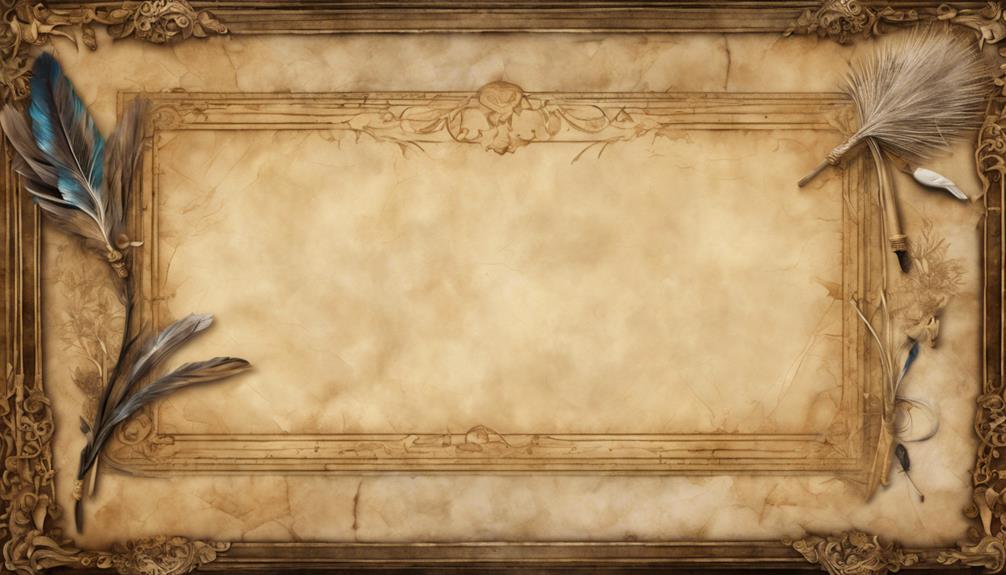
As you explore the domain of classical forms of poetry, you'll likely find yourself pondering: what constitutes a traditional poetic structure, and how have these forms evolved over time to shape the literary landscape? Delving into the sphere of classical forms, you'll discover that ancient meters played a pivotal role in shaping the foundation of poetry. The use of specific meters, such as iambic pentameter, created a sense of rhythm and musicality that added depth to the poetic narrative. Sonnet structures, in particular, have been a cornerstone of classical poetry, with their 14-line framework and carefully crafted rhyme schemes. The sonnet's evolution, from its origins in ancient Italy to its adaptation in English literature, showcases the versatility and resilience of classical forms. By examining these traditional structures, you'll gain insight into the intricate craftsmanship that underlies classical poetry, and how these forms continue to influence contemporary poetry.
Romantic Era's Emotional Depth
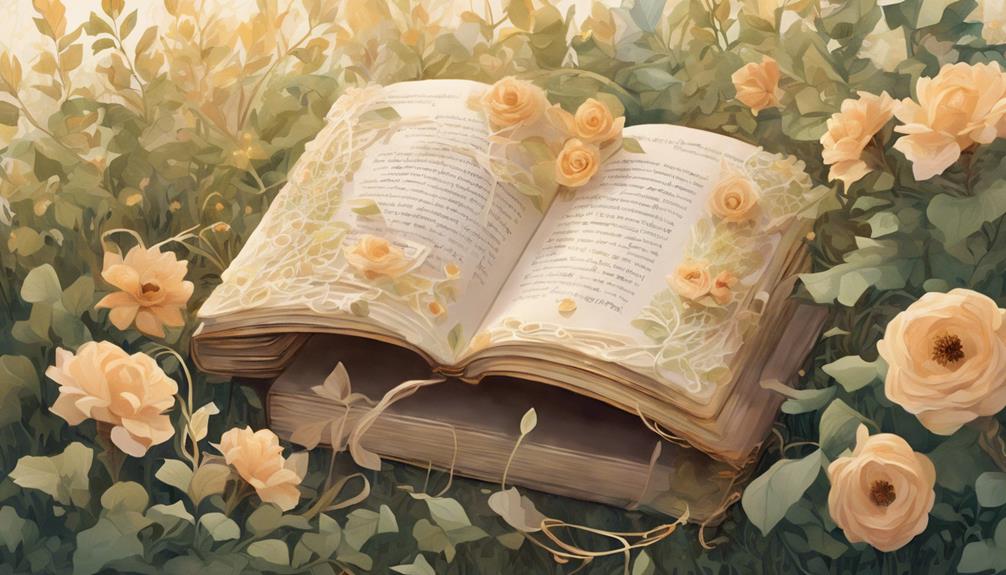
During the Romantic Era, you'll find that poets sought to explore the profound emotional reservoirs of the human experience, crafting verses that resonated with intense passion, fervor, and sentimentality. This era's poetry is characterized by its emphasis on the sublime, the beautiful, and the mysterious. You'll notice that poets like Wordsworth, Coleridge, and Keats created sentimental sonnets that investigated the human psyche, plunging into the depths of love, loss, and longing. Their poetry often featured Gothic landscapes, eerie and mystical, which served as a backdrop for their introspective and emotional investigations. These poets sought to evoke feelings of awe, wonder, and even fear in their readers, drawing them into a world of intense emotional experience. As you explore the poetry of this era, you'll discover a profound sense of emotional depth, a sense of the poet's inner world laid bare on the page. The Romantics' emphasis on emotion, imagination, and the beauty of nature continues to captivate readers to this day.
Free Verse and Modern Experimentation
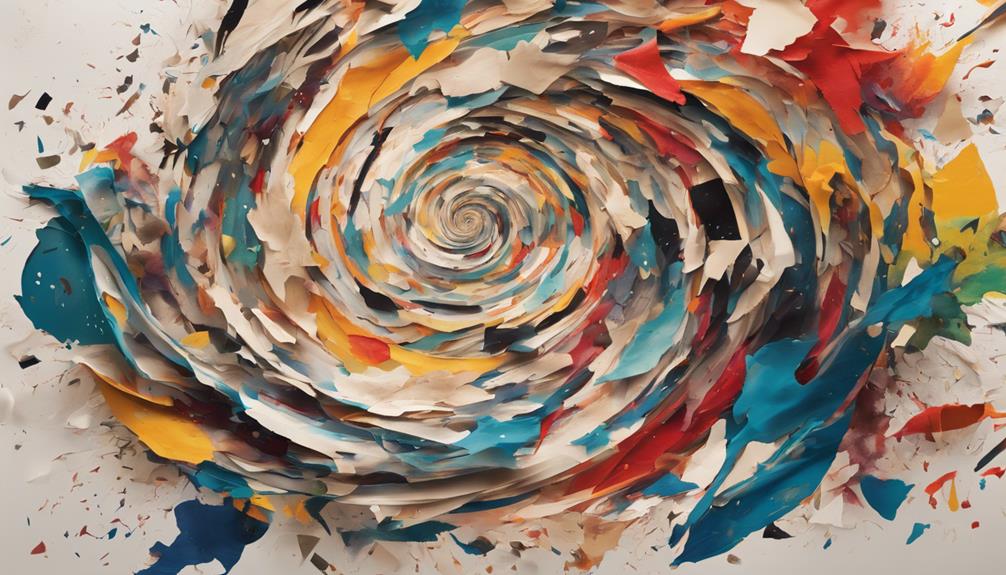
With the Romantic Era's emphasis on emotional depth and the beauty of nature, you'll find that modern poets began to rebel against these traditional forms, seeking to shatter conventions and forge a new path with the emergence of free verse and modern experimentation. This shift marked a significant departure from the structured forms of the past, as poets sought to break free from the shackles of rhyme and meter. You'll notice that free verse, in particular, allowed for a more fluid and expressive style, enabling poets to explore the subconscious and the irrational. The Surrealism roots of this movement are evident in the work of poets like André Breton, who drew upon the world of dreams and the unconscious to craft unique, avant-garde poetry. Additionally, the use of Fragmented narratives and disjointed structures became a hallmark of modern experimentation, as poets sought to mirror the disjointedness of modern life. As you immerse yourself in the world of free verse and modern experimentation, you'll discover a rich tapestry of innovative styles and techniques that continue to shape the poetic landscape.
Cultural Heritage in Poetry Forms
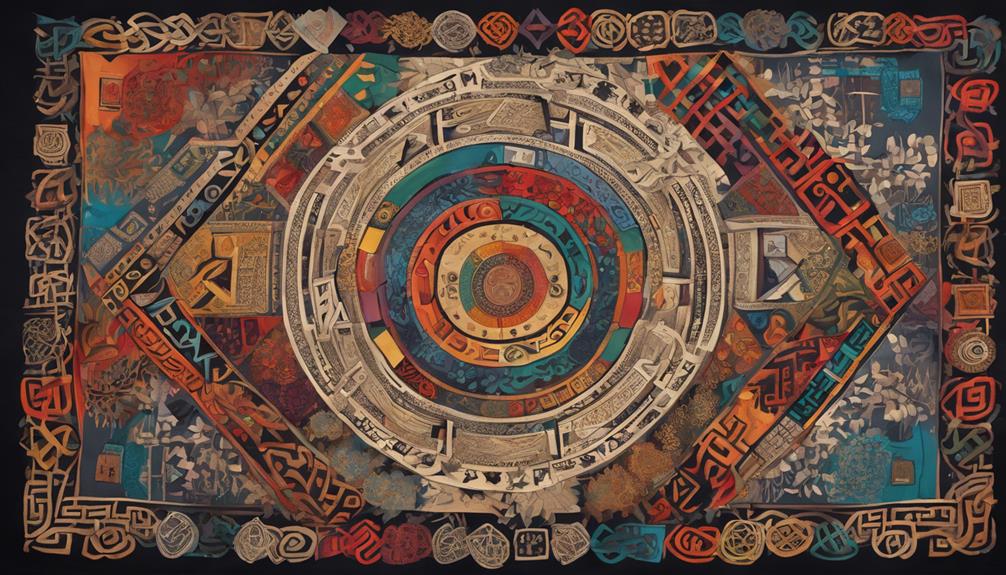
You'll find that cultural heritage has profoundly influenced the development of various poetry forms, as the echoes of ancestral voices, myths, and legends continue to resonate in the works of poets from diverse ethnic and national backgrounds. This rich tapestry of cultural influences has given rise to unique poetry forms that reflect the complexities of cultural fusion. For instance, the African diasporic experience has shaped the rhythms and cadences of Afro-Caribbean poetry, while the folkloric roots of Native American poetry have inspired a deep connection with the natural world.
As you explore further into the world of poetry, you'll see that cultural heritage has not only influenced the content but also the form and structure of poetry. The use of call-and-response patterns in African American poetry, for example, is a reflection of the oral traditions of African cultures. Similarly, the emphasis on storytelling in Latin American poetry is a reflection of the region's rich cultural heritage. By examining the cultural heritage embedded in poetry forms, you'll gain a deeper appreciation for the diversity and richness of human experience.
Performance Poetry's Oral Tradition
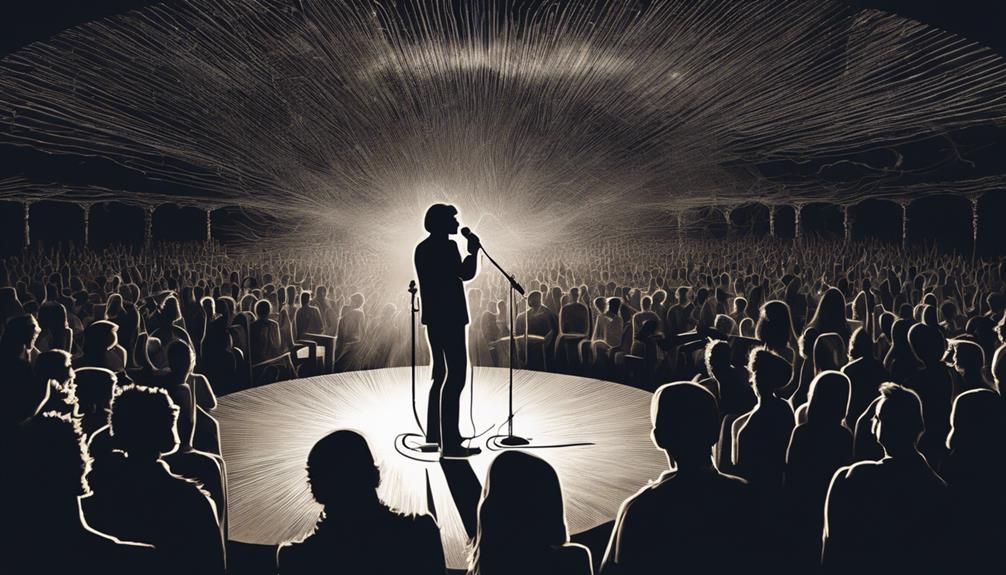
One of the most distinctive features of performance poetry is its reliance on oral traditions, which not only roots it in a rich cultural heritage but also enables poets to reclaim and reinterpret the spoken word as a powerful means of self-expression. As you explore the world of performance poetry, you'll notice that the spoken word evolution is deeply intertwined with the dynamics of Slam poetry. The latter, characterized by its competitive and improvisational nature, has played a significant role in shaping the former.
Slam poetry dynamics, with their emphasis on vocal inflections, body language, and audience engagement, have contributed to the development of a unique spoken word aesthetic. This aesthetic is characterized by its emphasis on the sonic and performative aspects of language, often blurring the lines between poetry and music. As you navigate the domain of performance poetry, you'll discover how poets strategically employ vocal tone, pace, and gesture to convey meaning and evoke emotions. By doing so, they not only pay homage to the oral traditions that have shaped poetry but also continue to push the boundaries of self-expression.
Contemporary Voices and Styles

As you explore the world of contemporary performance poetry, you're likely to encounter a diverse array of voices and styles that reflect the complexities of our modern world. This vibrant landscape is characterized by its eclecticism, with poets drawing from various cultural, social, and personal experiences to craft unique narratives. The Spoken Word Slam, a genre that emerged in the 1980s, continues to thrive, providing a platform for artists to express themselves freely. Here, you'll find poets like Sarah Kay, who weaves together introspective Millennial Musings with compelling storytelling.
In this contemporary scene, you'll also discover a strong emphasis on identity, social justice, and personal narratives. Poets like Danez Smith and Alysia Harris use their voices to confront systemic injustices, while others, such as Andrea Gibson and Phil Kaye, explore themes of love, identity, and technology. As you navigate this dynamic landscape, you'll uncover a rich tapestry of voices, each one adding to the ever-evolving narrative of contemporary performance poetry.
Frequently Asked Questions
Can Poetry Be Written in Languages Other Than English?
You might assume that poetry is inherently tied to the English language, but you'd be mistaken. Poetry can be written in any language, and it's crucial to recognize that language barriers can actually enrich the art form. Cultural nuances, for instance, can add depth and complexity to a poem. As you explore poetry in languages other than English, you'll discover unique idioms, metaphors, and rhythms that can expand your understanding of the art form.
How Do I Get My Poetry Published in a Literary Magazine?
You're ready to share your poetry with the world, but unsure how to get published in a literary magazine. Start by researching submission guidelines for your target publications, ensuring your work aligns with their tone and style. Consider consulting with literary agents who specialize in poetry to refine your submission strategy. Carefully follow each magazine's guidelines, and be prepared for potential rejections before celebrating an acceptance.
Is Poetry Only for Those With a Creative Writing Degree?
As a writer, you're likely haunted by the specter of a creative constraint, wondering if a degree in creative writing is the sole key to accessing poetry's gates. But fear not, for the Muses don't discriminate based on academic prerequisites. Poetry is for anyone willing to tap into their inner world, to bleed ink onto the page. Your voice, unique and unbridled, can resonate with readers, degree or not.
Can I Use Slang and Colloquialisms in My Poetry?
You're wondering if using slang and colloquialisms in your poetry is acceptable. Absolutely, you can! In fact, incorporating street language and dialect authenticity can add a layer of realism and relatability to your work. It's all about striking a balance between creative expression and clarity. By embracing your unique voice and linguistic heritage, you'll craft poetry that resonates with readers and celebrates the beauty of everyday language.
Do I Need to Be a Good Public Speaker to Perform My Poetry?
When you're ready to take the leap and share your poetry with the world, don't let stage fright get the best of you. You don't need to be a seasoned orator to perform your poetry, but having some stage presence can make all the difference. In the world of spoken word, it's not about being a good public speaker, but about being authentic and conveying your message with conviction.
